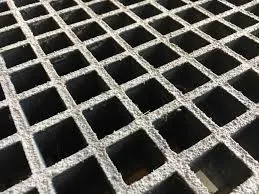
-
 Afrikaans
Afrikaans -
 Albanian
Albanian -
 Amharic
Amharic -
 Arabic
Arabic -
 Armenian
Armenian -
 Azerbaijani
Azerbaijani -
 Basque
Basque -
 Belarusian
Belarusian -
 Bengali
Bengali -
 Bosnian
Bosnian -
 Bulgarian
Bulgarian -
 Catalan
Catalan -
 Cebuano
Cebuano -
 China
China -
 China (Taiwan)
China (Taiwan) -
 Corsican
Corsican -
 Croatian
Croatian -
 Czech
Czech -
 Danish
Danish -
 Dutch
Dutch -
 English
English -
 Esperanto
Esperanto -
 Estonian
Estonian -
 Finnish
Finnish -
 French
French -
 Frisian
Frisian -
 Galician
Galician -
 Georgian
Georgian -
 German
German -
 Greek
Greek -
 Gujarati
Gujarati -
 Haitian Creole
Haitian Creole -
 hausa
hausa -
 hawaiian
hawaiian -
 Hebrew
Hebrew -
 Hindi
Hindi -
 Miao
Miao -
 Hungarian
Hungarian -
 Icelandic
Icelandic -
 igbo
igbo -
 Indonesian
Indonesian -
 irish
irish -
 Italian
Italian -
 Japanese
Japanese -
 Javanese
Javanese -
 Kannada
Kannada -
 kazakh
kazakh -
 Khmer
Khmer -
 Rwandese
Rwandese -
 Korean
Korean -
 Kurdish
Kurdish -
 Kyrgyz
Kyrgyz -
 Lao
Lao -
 Latin
Latin -
 Latvian
Latvian -
 Lithuanian
Lithuanian -
 Luxembourgish
Luxembourgish -
 Macedonian
Macedonian -
 Malgashi
Malgashi -
 Malay
Malay -
 Malayalam
Malayalam -
 Maltese
Maltese -
 Maori
Maori -
 Marathi
Marathi -
 Mongolian
Mongolian -
 Myanmar
Myanmar -
 Nepali
Nepali -
 Norwegian
Norwegian -
 Norwegian
Norwegian -
 Occitan
Occitan -
 Pashto
Pashto -
 Persian
Persian -
 Polish
Polish -
 Portuguese
Portuguese -
 Punjabi
Punjabi -
 Romanian
Romanian -
 Russian
Russian -
 Samoan
Samoan -
 Scottish Gaelic
Scottish Gaelic -
 Serbian
Serbian -
 Sesotho
Sesotho -
 Shona
Shona -
 Sindhi
Sindhi -
 Sinhala
Sinhala -
 Slovak
Slovak -
 Slovenian
Slovenian -
 Somali
Somali -
 Spanish
Spanish -
 Sundanese
Sundanese -
 Swahili
Swahili -
 Swedish
Swedish -
 Tagalog
Tagalog -
 Tajik
Tajik -
 Tamil
Tamil -
 Tatar
Tatar -
 Telugu
Telugu -
 Thai
Thai -
 Turkish
Turkish -
 Turkmen
Turkmen -
 Ukrainian
Ukrainian -
 Urdu
Urdu -
 Uighur
Uighur -
 Uzbek
Uzbek -
 Vietnamese
Vietnamese -
 Welsh
Welsh -
 Bantu
Bantu -
 Yiddish
Yiddish -
 Yoruba
Yoruba -
 Zulu
Zulu
Versatile Applications and Benefits of Fiberglass Fans in Industrial Settings
The Versatility and Benefits of Fiberglass Fans
In today's industrial landscape, efficiency and reliability are paramount, especially when it comes to ventilation and cooling systems. Among various solutions, fiberglass fans have emerged as a popular choice across a multitude of applications. These fans are not only durable and efficient, but they also offer unique advantages that make them suitable for both commercial and residential use.
Fiberglass, a composite material made of glass fibers and resin, is known for its strength, lightweight, and corrosion resistance. When used in fan manufacturing, these attributes translate into significant benefits. One of the primary advantages of fiberglass fans is their ability to withstand harsh environments. Unlike traditional metal fans, which can corrode over time when exposed to moisture, chemicals, or saline conditions, fiberglass fans are resistant to corrosion. This makes them ideal for use in industries such as chemical processing, wastewater treatment, and marine applications, where exposure to aggressive environments is common.
Another advantage of fiberglass fans is their lightweight nature. This attribute not only simplifies installation but also reduces the overall load on structures. Lightweight fans can be easily mounted on various surfaces, which can be particularly beneficial in situations where the installation location has weight restrictions. Furthermore, because they are easier to handle, there is less risk of injury during installation and maintenance.
Efficiency is another key factor where fiberglass fans excel. These fans are designed to move air effectively, often operating at lower energy levels compared to their metal counterparts. This energy efficiency not only reduces operational costs but also contributes to a lower carbon footprint, making fiberglass fans an attractive option for businesses seeking sustainable solutions. Moreover, innovative designs that incorporate advanced aerodynamic principles further enhance their performance, ensuring optimal airflow and pressure characteristics.
fiberglass fan

Sound attenuation is yet another area where fiberglass fans come into play. They are known for operating more quietly than metal fans due to their construction and the absence of metallic vibration. This is particularly beneficial in environments that require low noise levels, such as residential areas, schools, and hospitals. The reduction in noise pollution enhances the overall environment, promoting comfort and productivity.
In terms of maintenance, fiberglass fans offer an advantage over traditional materials. Their corrosion resistance means that they generally require less frequent maintenance and replacement, leading to lower long-term costs. Additionally, many fiberglass fans come with easy-to-clean designs that facilitate maintenance without the need for extensive shutdowns in operation.
The aesthetic appeal of fiberglass fans should not be understated either. Available in a variety of colors and finishes, these fans can be tailored to fit the design requirements of any space, whether it's a factory floor or a stylish indoor setting. This customization can often integrate seamlessly into existing architectural designs, enhancing visual appeal and functionality.
In conclusion, fiberglass fans present a versatile and efficient solution for various ventilation needs across multiple industries. Their resistance to corrosion, lightweight attributes, energy efficiency, quieter operation, and low maintenance requirements make them an ideal choice for both industrial and residential applications. As businesses and homeowners continue to prioritize sustainability and efficiency, fiberglass fans stand as a testament to how advanced materials can meet modern challenges while delivering exceptional performance.
Latest news
-
High-Quality Fiberglass Car Bodies Durable GRP Car & Boat Body SolutionsNewsJul.08,2025
-
High-Quality Fiberglass Dual Lamination Product Manufacturer Durable FRP & GRP Dual Lamination SolutionsNewsJul.08,2025
-
Rectangular Tank with Dimensions for GRP Calculation Custom Fiberglass GRP Rectangular TanksNewsJul.07,2025
-
High-Quality Fiberglass Weir Custom FRP Weir & Fiberglass Tanks ManufacturerNewsJul.07,2025
-
CPVC FRP Pipe A Reliable Choice for Industrial Applications High Strength & Corrosion ResistanceNewsJul.07,2025
-
Fiberglass Scrubber for Effective Cleaning and Stain Removal – Superior Performance in Various ApplicationsNewsJul.06,2025









